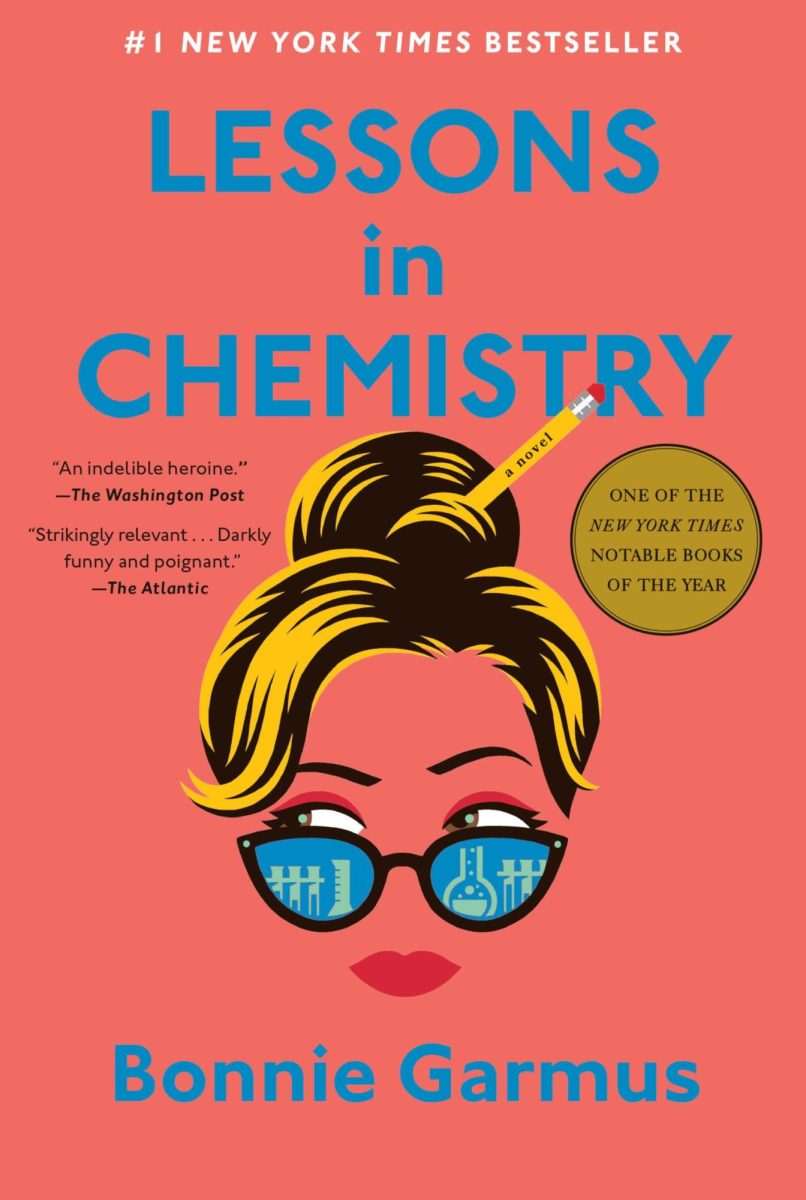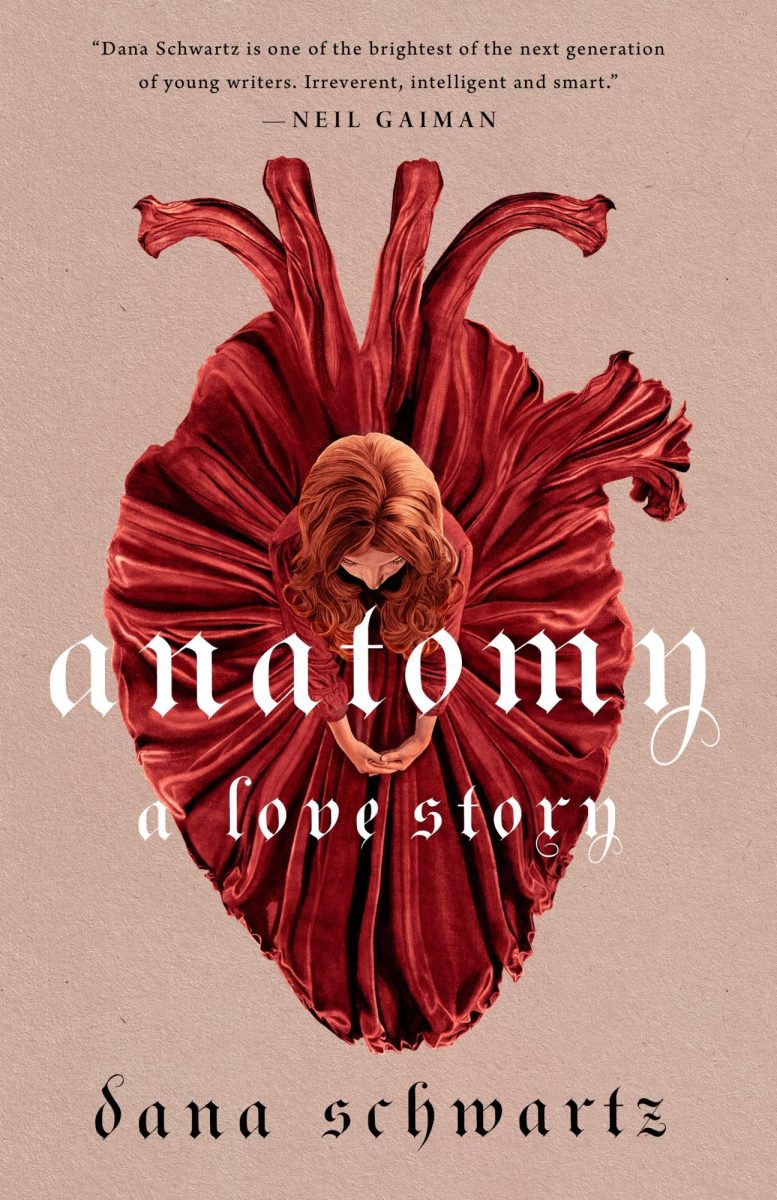Have you ever been in absolute awe of someone? This is the effect Elizabeth Zott had on me and presumably the majority of Bonnie Garmus’ readers. She is the protagonist of Garmus’ historical fiction, Lessons in Chemistry, and her persistence and mental strength are beyond admirable.
This riveting storyline commences in the early 1950s and it dives into the overwhelming misogyny within the workplace, education system, and everyday life. Elizabeth is an independent chemist who works at Hastings Research Institute and faces continuous adversity because her gender is supposedly inferior and incapable. Throughout the plot, she faces numerous challenges that would drive the average person to quit. However, this book proves that Elizabeth is far from average.
In the midst of her educational career, she is sexually harassed by a professor who is supposed to mentor her during office hours. Somehow it is deemed her fault and she is kicked out of school. During her professional career, she is fired when her boss finds out she is simultaneously pregnant and unmarried. Throughout her pregnancy, men from her former lab, Hastings, visit her in order to ‘review work’ which entails Elizabeth spelling everything out for them. Additionally, one of her works—that she had been devoting the majority of her time to—is stolen by her boss and published as his own. This is but a small sample of the injustices she faced.
During a dispute with Mrs. Frask—a coworker Elizabeth isn’t very fond of—they find they have common trauma. Mrs. Frask, in an attempt to belittle Elizabeth, asks why she doesn’t have a PhD. Elizabeth shouts in response, “Because I was sexually violated by my thesis advisor, then kicked out of the doctoral program.” Frask responds with a straightforward “Same.” This conveys to readers that this tragic event was an all-too-common occurrence that derailed many women’s careers. Inner strength enabled Elizabeth to avoid this fate.
In another shocking event, Elizabeth is called down to the school because her daughter, Madeline, wants to be a part of her elementary school’s safety patrol. Her teacher denied this request because “only boys are on safety patrol. Boys protect girls. Because they’re bigger.” This encounter perfectly depicts the inescapable stereotypes that permeate even the most basic interactions of mid-century life.
I was hesitant when I first picked up this book as I often find myself wary of novels that seem endlessly praised. Fortunately, that hesitation was quickly put to rest by Elizabeth’s inspirational tenacity, audacious character, and enviable courage which serve as shining examples for women. Although this story isn’t based on true events, it has the ability to connect with countless individuals and inspire them to defy stereotypes and pursue their dreams.











